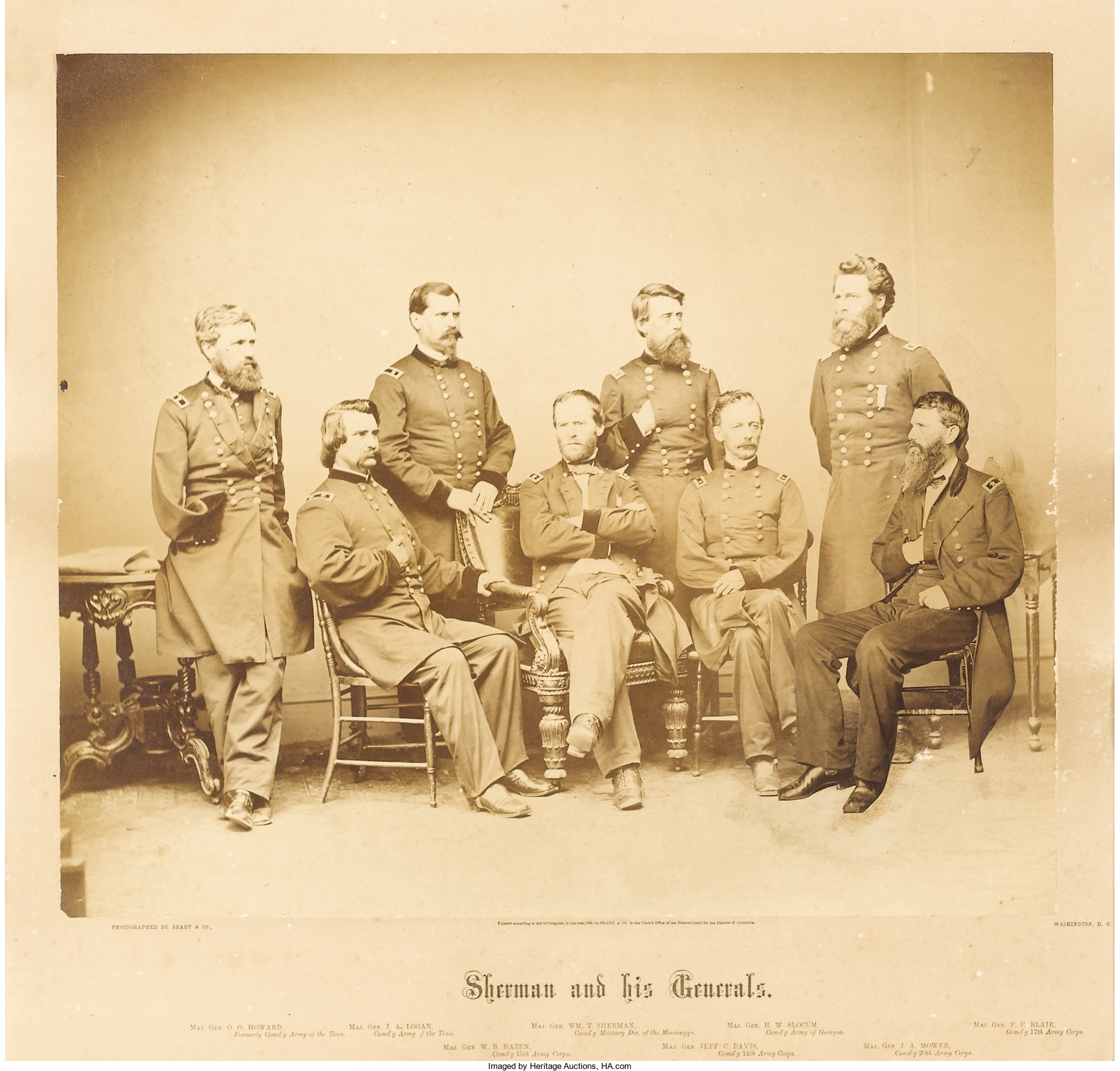
By Jim O’Neal
“Well, you might as well attempt to put out the flames of a burning house with a squirt gun!”
This was William Tecumseh Sherman’s sarcastic reaction to President Abraham Lincoln’s proclamation on April 15, 1861, for 75,000 three-month volunteers to quell the secession of Southern states from the Union.
Exactly four years later on April 15, 1865, Lincoln would be among the last of the 620,000 to die attempting to stop the war of secession.
Sherman had earlier warned: “You people of the South don’t know what you are doing. This country will be drenched in blood, and God only knows how it will end. It is all folly, madness, a crime against civilization …” He thus very accurately described the four years of hell that would rain down on the United States as the country descended into war.
For several generations of Americans, and probably yet today, the name William Tecumseh Sherman would conjure up fear and pure hatred, especially among those familiar with his famous March to the Sea. Also known as the Savannah Campaign, it started after the burning of Atlanta (so vividly depicted in Gone With the Wind) and lasted from Nov. 15 to Dec. 21, 1864. It was viewed as an act of savage brutality, with burning cities, ransacked plantations and terror-stricken women and children.
But it did help to bring the senseless war to an earlier end.
By forcing non-combatants to feel the “hard hand of war” and making the war as harsh as possible, it succeeded in undermining Confederate morale, triggered a wave of desertions and proved to the rebels their cause was hopeless and unwinnable. By using war against the minds of his opponents, the fear Sherman created was more powerful than his acts of destruction. The Confederacy was to be no more.
On Dec. 25, 1864, Sherman telegraphed Lincoln: “I beg to present you as a Christmas gift the City of Savannah, with one hundred and fifty guns and plenty of ammunition and about 25,000 bales of cotton.”
A few weeks after General Robert E. Lee’s surrender to Ulysses S. Grant at Appomattox, Southern General Joseph E. Johnston surrendered his three armies to Sherman at Bennett Place near Durham, N.C. The fighting would soon come to an end.
Sherman had succeeded Grant as Commander of the Western Front and when Grant became president, Sherman became Commanding General of the Army. When asked about his relationship with Grant, Sherman famously said, “General Grant was a great General. He stood by me when I was crazy and I stood by him when he was drunk. And sir, we will stand by each other forever.”
 Intelligent Collector blogger JIM O’NEAL is an avid collector and history buff. He is President and CEO of Frito-Lay International [retired] and earlier served as Chairman and CEO of PepsiCo Restaurants International [KFC Pizza Hut and Taco Bell].
Intelligent Collector blogger JIM O’NEAL is an avid collector and history buff. He is President and CEO of Frito-Lay International [retired] and earlier served as Chairman and CEO of PepsiCo Restaurants International [KFC Pizza Hut and Taco Bell].
